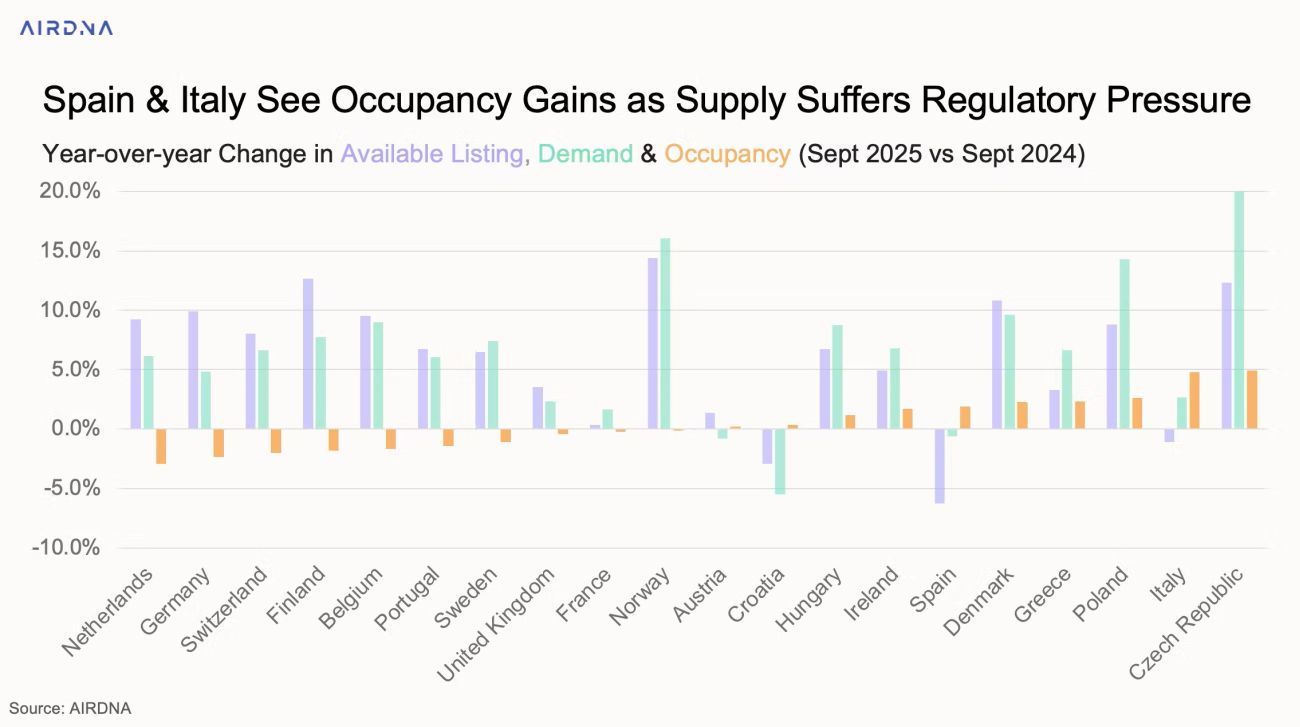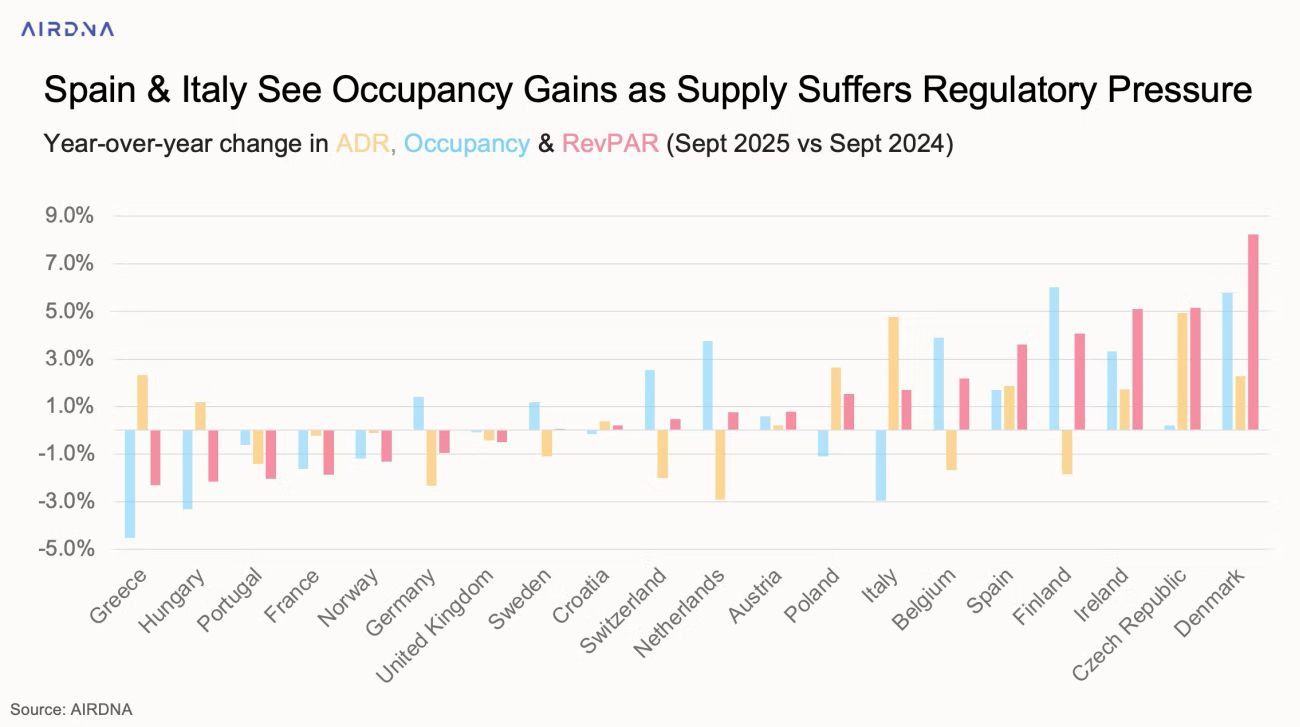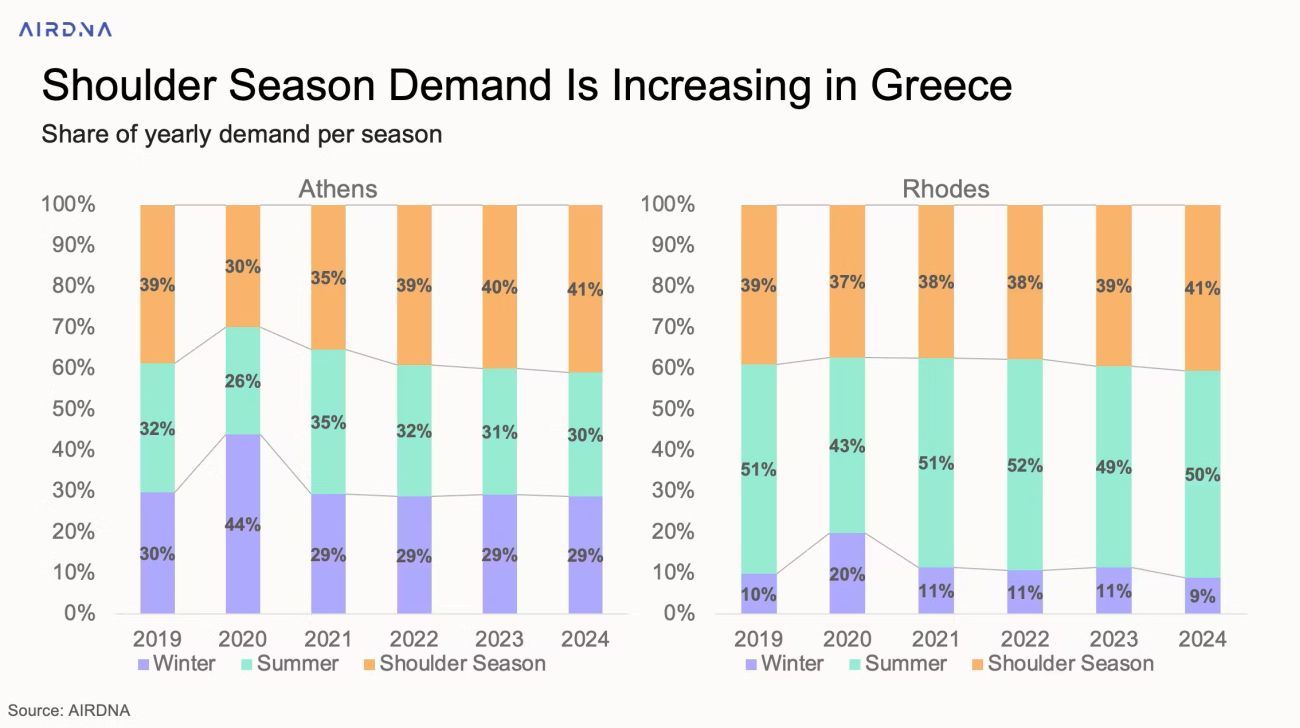Photo source: Airbnb
Greece’s short-term rental market continues to perform strongly beyond the summer peak, according to AirDNA’s latest review, which shows sustained demand and balanced supply through September.
Data from the analytics platform reveal that demand for stays in Greece rose by 4.3 percent year-on-year in September, while supply increased by 3.9 percent. This parallel growth helped maintain market balance despite a slight drop in average occupancy, which edged down by 0.4 percent due to the expanded availability of listings.
AirDNA noted that overall performance remained robust, supported by continued traveler interest in seaside and island destinations after the summer rush. The data confirm that visitors are extending their stays into the shoulder season, underscoring Greece’s growing appeal as a flexible short-term rental market.
As the high season comes to a close, September figures show a 4 percent annual decline in the average daily rate (ADR), which fell to 169 euros, and a 2 percent drop in revenue per available rental (RevPAR), which stood at 100 euros. Occupancy rose by 2 percent compared with last year, reaching 59 percent, though sharply lower than August’s 76 percent.
According to AirDNA, these performance shifts highlight the market’s heavy dependence on peak-season tourism.
Greek short-term rentals remain strong beyond summer peak
The analysis also points to a gradual flattening of seasonality across key destinations.
In Athens, the share of annual demand during the shoulder months (March–May and September–October) rose from 39 percent in 2019 to 41 percent in 2024, while summer’s share fell from 32 to 30 percent.
Rhodes shows a similar pattern, with mid-season demand rising from 39 to 41 percent over the same period and summer declining slightly from 51 to 50 percent. Winter travel remains modest at 9–11 percent, but the trend indicates growing visitor interest beyond the traditional peak.
Overall, AirDNA identifies a structural broadening of Greece’s tourism calendar, supported by milder weather, lower prices, and reduced crowding.
“Rising temperatures and frequent summer heatwaves are encouraging travelers to seek cooler months, while lower off-season prices add to the appeal,” the analysis notes, adding that growing concerns over overtourism also drive visitors toward less crowded periods.
Across Europe, short-term rental demand rose by 3.6 percent in September, while supply grew by 2.3 percent to reach four million listings.
In countries like Spain and Italy, reduced supply due to stricter regulations led to higher occupancy and some of the strongest RevPAR growth rates on the continent — up 4 and 2 percent respectively.
Follow GTP Headlines on Google News to keep up to date with all the latest on tourism and travel in Greece.



